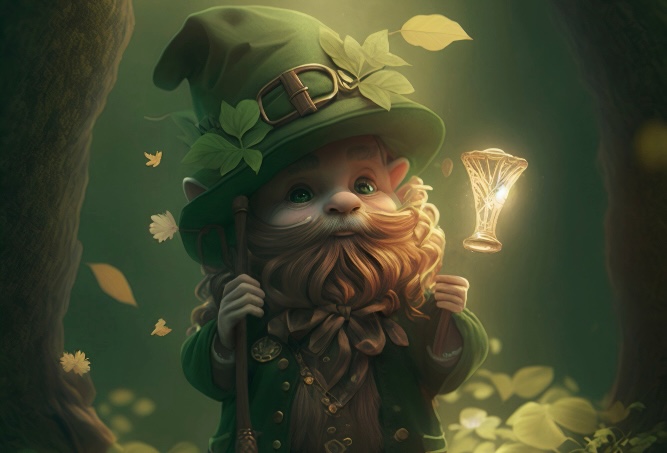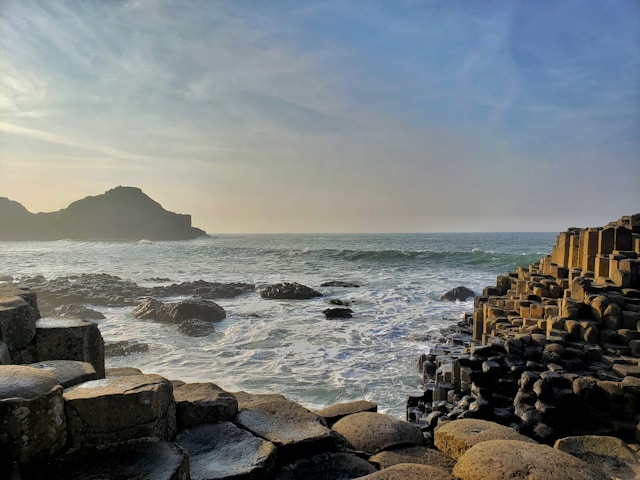

Exploring the Enchanting World of Irish Folklore and Legends
Exploring the Enchanting World of Irish Folklore and Legends From leprechauns and their pots of gold to banshees and giants - Ireland is known for its rich folklore and many legends. The enchanting tales and mythical beings from Irish folklore offer a glimpse into the cultural heritage of the island. Join us as we delve into the captivating stories of Irish folklore and legends that have been passed down through generations, painting a picture of Ireland's magical past.
The Mystical World of the Sidhe
At the heart of Irish folklore are the Sidhe (pronounced "shee"), a race of supernatural beings believed to inhabit the Otherworld. The Sidhe are often associated with the Tuatha Dé Danann ( "Too-a-ha day Dan-an"), a mythical tribe of gods and goddesses who were said to have ruled Ireland in ancient times. According to a medieval Irish Christian history, when the Milesians, representing the Irish people, conquered Ireland, the Tuatha Dé Danann retreated into the hills, becoming the Sidhe. These ethereal beings are known for their beauty, immortality, and magical powers, and they are often linked to natural features such as hills, mounds, and fairy forts.
One of the most famous Sidhe is the banshee or bean sídhe ("ban shee"), whose wailing is said to foretell the death of a family member. While the banshee is often depicted as a harbinger of doom, other Sidhe, such as the leprechaun, bring a touch of mischief and luck to Irish folklore. Leprechauns are mostly depicted as small, bearded men known for their shoemaking skills and hidden pots of gold. If you’re lucky enough to catch a leprechaun, legend has it that he will grant you three wishes in exchange for his freedom.

Source: image by freepik
The Legend of the Giant’s Causeway
The Giant’s Causeway, a natural wonder located on the coast of Northern Ireland, is steeped in legend. According to Irish mythology, the causeway was built by the giant Fionn mac Cumhaill ( "Finn mac Cool") as a bridge to Scotland to fight his rival, the giant Benandonner. One version of the story tells how Fionn, seeing the size of Benandonner, fled back to Ireland, where his clever wife, Oonagh, disguised him as a baby. When Benandonner saw the "baby," he assumed that the father must be enormous and fled back to Scotland, destroying the causeway behind him. Today, the hexagonal basalt columns of the Giant’s Causeway stand as a testament to this legendary tale. You can visit it during one of our day tours.

Source: Sean Kuriyan on Unsplash
The Tragic Love Story of Diarmuid and Gráinne
Irish folklore is also rich with tales of romance and tragedy, none more poignant than the story of Diarmuid ( "Dear-mid") and Gráinne (pronounced "Grawn-ya"). Gráinne, the beautiful daughter of the High King of Ireland, was betrothed to the aging hero Fionn mac Cumhaill, now a widower and a vengeful person. However, she fell in love with Diarmuid, one of Fionn’s warriors. On the night of her betrothal, Gráinne gave a sleeping potion to the guests and persuaded Diarmuid to run away with her. The couple was pursued by Fionn and his men, but with the help of the Sidhe, they managed to evade capture for many years. Until Fionn eventually finds them and Diarmuid meets his demise. Their love story, filled with passion, betrayal, and sacrifice, remains one of the most enduring legends in Irish mythology and is even said to have influenced the famous story of Tristan and Iseult.
The Heroic Cú Chulainn
Cú Chulainn ("Coo Cull-in"), one of Ireland’s greatest mythical heroes, is known for his superhuman strength and heroic deeds. Born as Setanta ("Seh-tan-ta"), he earned his new name name Cú Chulainn, meaning "Hound of Culann," after killing the fierce guard dog of a smith named Culann and offering to take its place until a replacement could be reared. His most famous feat is the defense of Ulster against the armies of Queen Medb during the Cattle Raid of Cooley or Táin Bó Cúailnge ("Tawn Bo Koo-al-in-ya"), when he is seventeen. Despite his youth, Cú Chulainn single-handedly held off the invading forces by defeating champion after champion in a standoff that lasts for months, showcasing his bravery and martial prowess.
Irish folklore and legends are a treasure trove of stories that not only reflect the island’s rich cultural heritage but also its deep connection to the natural world. As you explore Ireland, whether you’re visiting ancient sites, wandering through the landscapes, or simply enjoying a pint in a local pub, take a moment to immerse yourself in the magical world of Irish folklore. You’ll discover that the spirit of these legends is very much alive, adding an extra layer of enchantment to the Emerald Isle. And there are many more legends and heroes to learn about, often - typical for Ireland - through songs. If you listen closely to our guides and drivers on the day tours, you might hear some more Irish folklore and legends.
Header image source: wirestock auf Freepik
Recent posts














